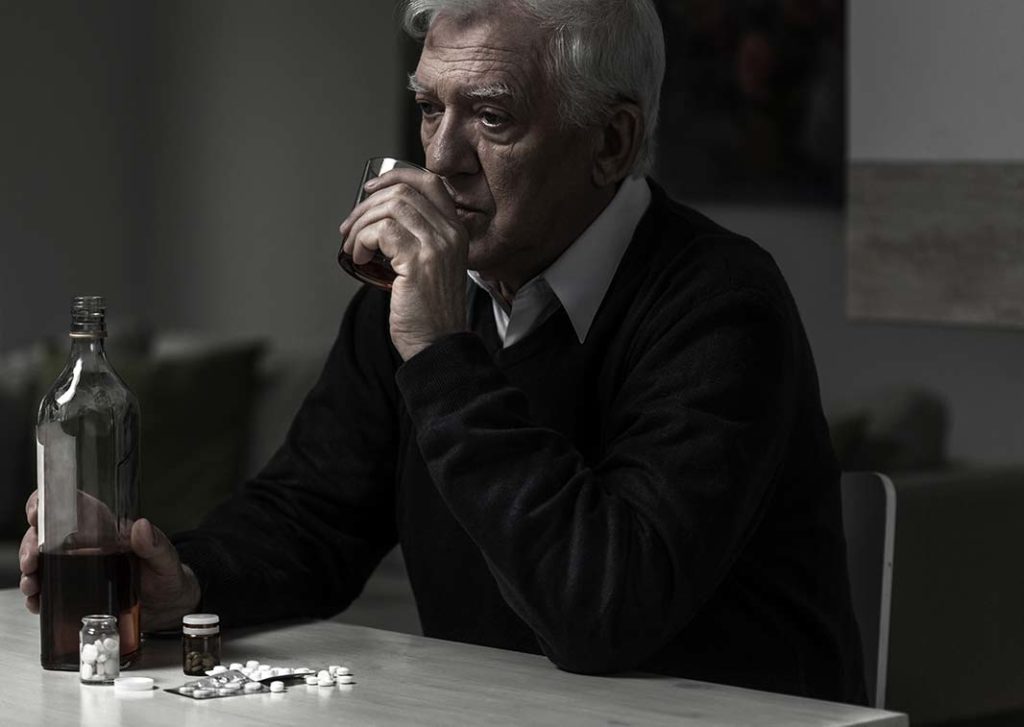Help for Children of Alcoholics and Other Resources
“There’s no handbook on how to survive a loved one’s addiction,”
wrote Sara Amato in
The Washington Post last year. (She was recalling what it was like to grow up with an alcoholic mother.) However, if there were a handbook, its first piece of advice to those with one or more parents with a substance use disorder would be this: Get help for yourself before even thinking about how to help a parent.
The safety instructions that flight attendants dispense before take-off are
apropos here. You need to adjust your own oxygen mask before helping a loved one with theirs. What that looks like when the context is substance abuse is:
1. Making sure you have your own supports in place by joining a recovery group like Al-Anon or Adult Children of Alcoholics (ACoA)
2. Maintaining healthy boundaries in your relationship with your parent and being mindful of signs of codependency
3. Reminding yourself of the “Seven C’s” (a messaging tool that while originally developed for young children of alcoholics has application for kids of all ages):
- I didn’t CAUSE it
- I can’t CURE it
- I can’t CONTROL it
- I can help take CARE of myself by:
- COMMUNICATING my feelings
- Making healthy CHOICES
- CELEBRATING me
Help for a Parent with a Drug or Alcohol Problem
In order to
help a parent with a drug or alcohol problem, you can benefit from knowing the signs and symptoms of substance abuse in older Americans. Knowing and noting these signs and symptoms is a first step in helping a parent get treatment, in the absence of which, an untreated addiction can lead to serious and even life-threatening consequences.
It is widely understood in medical circles, after all, that old age only heightens one’s vulnerability to the damaging side effects of alcohol and other drugs. That is why doctors generally prescribe lower doses of prescription drugs to this demographic; the same reality explains more stringent recommendations to older men and women regarding acceptable weekly levels of alcohol consumption. When consumed at higher levels, alcohol and other drugs can be especially dangerous for older Americans, contributing to falls, disabilities and fatalities.
Signs and symptoms of substance abuse can also be harder to spot in older Americans, for various reasons. Many aging Americans are retired, so the absence of alcohol or drug-related job troubles makes a SUD easier to disguise. Furthermore, the side effects of drug or alcohol abuse may mimic symptoms of other medical and behavioral conditions that can commonly appear within this demographic.
“Ageism” is another obstacle to catching addiction in older populations, as the SAMHSA publication cited earlier explains:
Younger adults often unconsciously assign different quality-of-life standards to older adults. Such attitudes are reflected in remarks like, "Grandmother's cocktails are the only thing that makes her happy," or "What difference does it make; he won't be around much longer anyway." There is an unspoken but pervasive assumption that it's not worth treating older adults for substance use disorders. Behavior considered a problem in younger adults does not inspire the same urgency for care among older adults. Along with the impression that alcohol or substance abuse problems cannot be successfully treated in older adults, there is the assumption that treatment for this population is a waste of health care resources.
Notwithstanding such obstacles to catching an older parent’s substance abuse problem, there are some signs you can be mindful of. The following symptoms may indicate the presence of a SUD:
- Heavy attendance at social events where alcohol is on hand
- Drinking in a solitary way
- Ritualized drinking (a habit of having drinks before, with or after dinner, for example, and annoyance at the disruption of this ritual)
- Loss of interest in activities and hobbies that used to bring pleasure
- Taking prescription drugs with alcohol, despite the label warnings
- The presence around the house of many prescription pill bottles, especially tranquilizers
- Tipsiness, intoxication and/or slurred speech
- Disposing of large amounts of beer and liquor bottles with secretiveness
- The frequent smell of liquor on the breath and/or mouthwash to disguise it
- Complaints about chronic insomnia, loss of appetite, and/or pain that has no obvious physical cause
- Neglect of appearance
- Unexplained burns or bruises on the body and attempts to hide them
- Unexplainable mood changes or irrational outbursts
- Trouble maintaining routine house chores and paperwork
Taking note of any of the above symptoms will help you better prepare for
consulting with addiction professionals about your concerns—and then, if/when you feel comfortable about your physical and emotional safety, broaching the matter with your parent(s). As you prepare to speak with your parent, keep the following things in mind:
- The earlier your intervention, the better, according to the research. Don’t wait until your loved one hits “rock bottom” to encourage them to seek help.
- The more prepared you are for the conversation, the better. That means knowing beforehand all of the prescribed and over-the-counter drugs your parent is taking, all of the doctors they are seeing, and your parent’s brief life and medical history.
- Your parent is an adult, and needs to be treated as an adult. A direct, gentle and loving tone that is respectful of this fact, and that observes signs and symptoms of substance abuse in a non-confrontational way, is most likely to be effective.
Save





